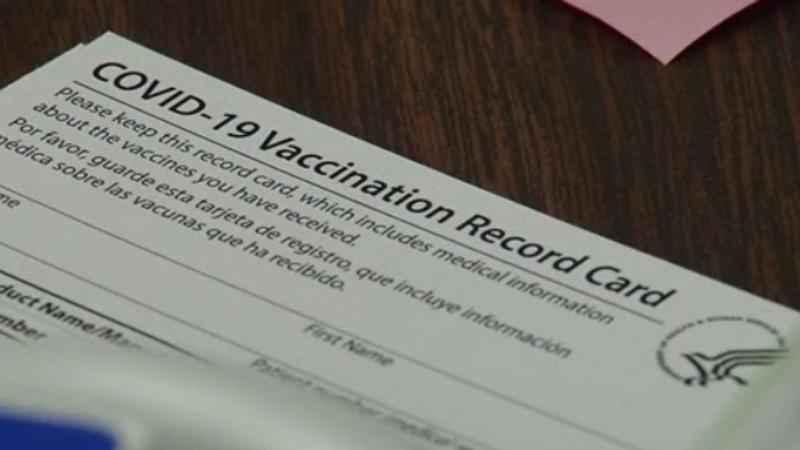MDH aware of fake COVID-19 vaccination cards; feds cracking down
[anvplayer video=u00225049103u0022 station=u0022998122u0022]
The Minnesota Department of Health says it’s aware of people creating fake COVID-19 vaccination cards. MDH also says the federal government is aware and that it’s taking it “very serious” and will be using “strong action” against those creating the phony cards.
In mid-July, a physician from California was busted by the Department of Justice for supplying her patients with a pill she claimed would give them COVID-19 antibodies and with a falsified vaccination card. According to the DOJ, this doctor was the first federal criminal fraud prosecution involving a fake COVID-19 immunization and vaccination card scheme.
“Falsifying a card is not a good idea, and all it does is put other people at risk,” said Kris Ehresmann, MDH’s director of infectious disease.
“The intent [of] ensuring people are vaccinated is to make sure you have a population that should be protected, so if someone is falsifying [vaccination cards], that undermines that goal,” Ehresmann added.
This concern stretches further than Minnesota’s health officials. A recent Associated Press investigation found that many colleges and universities that will be, or already are, requiring proof of vaccination are worried about the fakes.

A file photo of a vaccination card.[KSTP-TV]
Monday, the University of Minnesota announced that its students will have to show proof of vaccination once the U.S. Food and Drug Administration gives a COVID-19 vaccine full approval.
U of M’s office of public relations gave the following statement about the issue of people falsifying vaccination cards:
“The implementation procedures of the approach we announced today are still under development. While we’re aware of concerns that are surfacing about potentially fake vaccination cards, it is too early to tell what, if any impact, those reports will have for us.”
The University of St. Thomas has already made the decision to require it — a representative sent 5 EYEWITNESS NEWS the following statement about the issue and how it plans to check the validity of cards:
“We have multiple resources at our disposal to verify vaccination status. For instance, the majority of our student records are included in the Minnesota Immunization Information Connection database, and St. Thomas also has access to Wisconsin’s immunization registry. For any cards submitted directly to the university, our staff checks details such as the manufacturer, lot number and clinic that provided the vaccination.”
Gustavus Adolphus College, an institution requiring proof of vaccination from students, issued the following statement:
“At Gustavus Adolphus College, our Health Service is a licensed healthcare provider. As such, our clinical staff have access to the state’s confidential Minnesota Immunization Information Connection (MIIC). This means that Gustavus students, faculty, and staff who are vaccinated in Minnesota (about 80% of our 3,000-person community) do not have to upload proof of vaccination because Health Service staff can access it through the state’s confidential system.
“For students, faculty, and staff who are vaccinated in other states/countries, we are asking them to upload proof of their vaccination to our secure Health Service portal.
“Our entire COVID-19 response at Gustavus over the last 18 months has focused on leveraging the strength of our community and the shared connections we have as a small, residential college to encourage compliance. With this in mind, and considering that students can opt out of the vaccine requirement for medical, religious, or conscientious objection reasons, we believe that we will have a very low or even negligible amount of vaccine card fraud.”